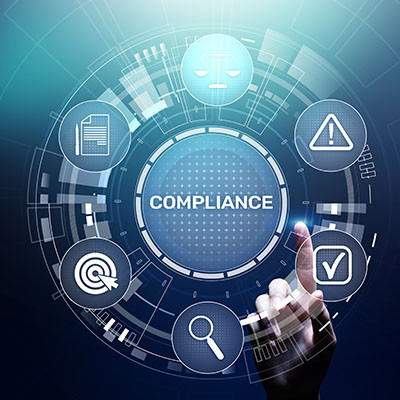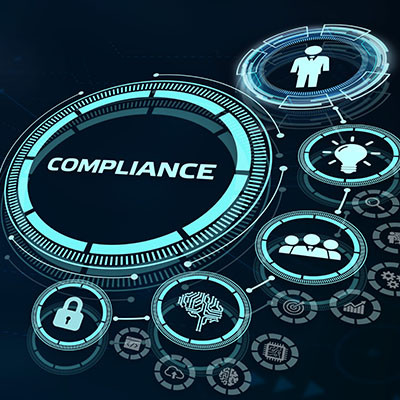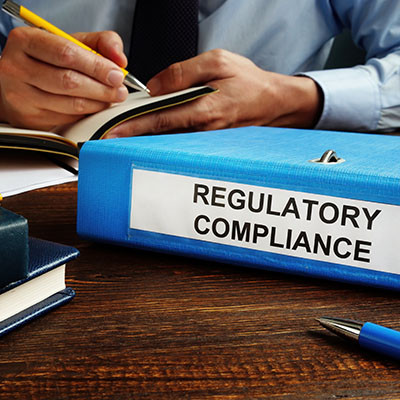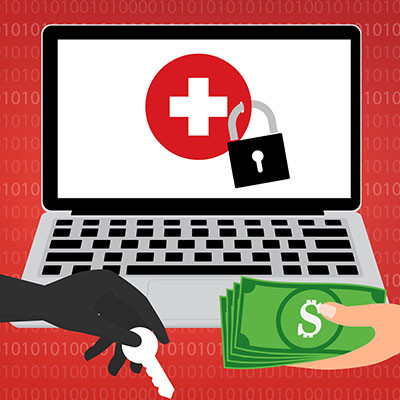When you send an email internally, the basic expectation is that it'll be read and addressed. However, in the chaotic environment of a busy business—especially for smaller teams juggling an immense workload—emails can, and do, slip through the cracks. If your team relies primarily on email for communication, a reliable email archiving system is a necessity to prevent lost messages from creating a disaster.
Datalyst Blog
For businesses, one of the scariest threats out there is that of compliance fines for not holding up your end of the bargain with your customers’ data. But what goes into compliance, and what does it look like? We won’t be digging into the nitty-gritty of what these specific regulations require; rather, we’re performing a broad analysis of what businesses should be doing to ensure compliance, regardless of the protocol or the industry.
Artificial intelligence, or AI, has upended the way that we discuss technology in business, society, and individual everyday life. While we mostly focus on the benefits of the technology, there are many downsides to consider as well. That’s what we’d like to discuss today; how AI has a dark side to it that potentially requires regulation.
Would you feel safe staying at a hotel that, instead of unique locks, each door used the same key as all of the others? Probably not—because if someone got in, they could take whatever they wanted. That’s similar to how old-school cybersecurity worked. Once someone got into a company’s network, they could access almost everything, making it easy for hackers to steal information. But today, many businesses use a better security framework called zero-trust security. In today’s blog, we discuss what zero-trust security is and why it’s safer.
It’s practically impossible to deny just how big of a concern cybersecurity should be for a business. The threats are worse than ever, the stakes are higher than ever before, and no organization wants to be responsible for the loss of dozens or hundreds of stolen identities. That’s why small and medium-sized businesses, especially those throughout New England, need to take cybersecurity seriously.
The following guide is designed for both business owners and employees, explaining complex concepts and prioritizing several critical cybersecurity habits.
While the word “audit” can easily be a scary thought for businesses, there are certain cases where an audit serves an organization’s direct benefit. Take, for instance, the ones that occur internally to identify and correct security issues and vulnerabilities. These audits are not only a positive endeavor for businesses; they’re extremely important to carry out.
Let’s talk about why this is and review a few standard practices you should prioritize as you go about this process.
Your business is likely subject to certain compliance laws and regulations depending on the type of data you collect from your clients or customers. Today, we want to emphasize the importance of your business considering regulation and compliance when managing its data and IT resources, as without doing so, you run considerable risk.
It’s a new year, and while businesses have been seeing a lot of new technologies emerge, cyberthreats have become increasingly dangerous and prevalent. With the increasing reliance on technology and the rise of remote work, it's crucial for decision makers to be aware of the top cyberthreats they may face and take proactive measures to protect their organizations. In this blog post, we'll discuss the top six cyberthreats that businesses need to be prepared for and how to mitigate their risks.
Perhaps predictably, the word “insure” has roots that tie it closely to “ensure,” as it is meant to ensure a level of security after some form of loss. Nowadays, that loss often pertains to data, making cyber insurance an extremely valuable investment for the modern business to make.
However, in order to obtain this kind of insurance, businesses commonly need to meet some basic requirements. Let’s go over some of these requirements now.
Accounting firms need strong cybersecurity measures. In an industry where accuracy and accountability are the name of the game, falling victim to cyberattacks can do catastrophic harm to your credibility. With sensitive financial information and personal data at stake, accounting firms must prioritize cybersecurity to protect their clients and their own business. In this article, we will explore why Massachusetts accounting firms in particular need to take cybersecurity seriously and the steps they can take to ensure their cyber defense is as strong as it needs to be to weather modern-day threats.
I want to pull back the curtains and be honest about something. As an IT professional, I never thought we’d see the day where business owners come to us to ask about the security of their business. For years and years, throughout most of my career, the role of bringing up cybersecurity has been on us, which is fine, but it sort of puts cybersecurity in this sort of “luxury” category. Cybersecurity always seemed to be a “let's put it on the docket for next year” sort of thing for a lot of business owners until just very recently.
Cybersecurity is important. Scroll through a few pages of our blog and you’ll see article after article talking about threats and ways to make yourself and your business less vulnerable to cyberthreats. As an IT professional, however, I’d be so much happier if the state of the world didn’t require such a massive effort just to protect oneself and we could just talk about cool stuff you can do with modern technology all the time!
But alas, strong cybersecurity is crucial to virtually any organization, and it’s becoming even more important by the month.
When I was a kid, there was a Tex Avery cartoon where Droopy Dog was chasing down a crook who escaped from jail. There was a particular scene where the crook (I think it was a wolf in a black-and-white striped jumpsuit) takes a bus, a plane, a ship, and a taxi to a secluded cabin, and then closes a series of increasingly complex doors with a large number of locks, in order to hide away from the pursuing cartoon basset hound.
Of course, when he turns around, exhausted by all the effort he puts in, he realizes that Droopy is standing right behind him, and greets him with a monotone “hello.”
I haven’t seen this cartoon since I was 7 years old, but I almost always think about it when I am using multi-factor authentication.
The Health Insurance Portability and Accountability Act is a regulation passed by the US congress in 1996 to help streamline the healthcare system while maintaining individual ePI privacy over individuals’ health records. This regulation was put in place to allow people to transfer their health coverage, but also to minimize the risk individuals take on as far as fraud and abuse of their health records is concerned. This week we’d thought we’d discuss four ways your technology can help your organization keep its HIPAA compliance.
Cloud computing is a major growth industry as businesses and individuals look to use the computing strategy to either save money or get resources that they would typically not be able to commit to. With cloud computing becoming more and more integrated into business each year, it stands to reason that the once Wild West of cloud computing would start to see a lot more regulation. This week, we’ll take a look at how the cloud is regulated and what to expect out of cloud regulation down the road.
A decade or so ago, IT security was as simple as buying antivirus software for each computer in a business. As long as you kept renewing your antivirus, kept it updated, and ran regular scans, your business would avoid 99 percent of the threats out there.
Over the last several years, things have changed and become much more complicated.




















